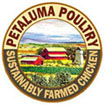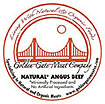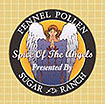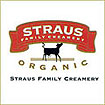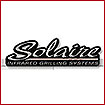
Salmon of the Americas, Inc. Agrees to
Legal Review of Advertisements in Response
to Federal Trade Commission Investigation
Pure Salmon Campaign successfully
petitioned FTC to investigate misleading
ad
WASHINGTON,
Feb. 16 /PRNewswire-USNewswire/ -- The
Pure Salmon Campaign learned today that
the Federal Trade Commission (FTC) initiated
a formal law enforcement investigation
against Salmon of the Americas, Inc. (SOTA),
resulting in the industry group committing
to institute a stricter advertising review
policy to prevent deceptive advertising
in the future.
The
FTC launched this investigation in response
to the February 2006 petition filed by
Pure Salmon challenging the industry group's
advertising and promotion of farmed salmon.
The challenged ad that appeared in the
New York Times Magazine in November 2005
pointed to the alleged health benefits
of farmed salmon and encouraged women
of childbearing age and young children
to eat unlimited quantities. However,
the ad failed to mention that farmed salmon
has been found to contain artificial coloring,
toxic by-products and cancer-causing contaminants.
"It
is rare for the FTC to investigate advertisements,"
said David Medine, a WilmerHale partner
and former FTC staffer. "So, this
action clearly meant that they took the
[Pure Salmon Campaign] petition quite
seriously."
According
to a letter from the FTC to the law firm
representing SOTA, "The staff was
concerned that the advertising at issue
represented, expressly or by implication
and without any qualification, that consumption
of ocean-farmed salmon by pregnant women
and nursing mothers provides substantial
benefits for developing fetuses and nursing
infants without any offsetting health
concerns."
The
letter also stated that, "The staff
was concerned that in the context of the
advertising at issue, SOTA's advertising
might be likely to mislead reasonable
consumers, through its failure to disclose
that women who are or might become pregnant,
nursing mothers, and children ages 12
or younger should consume no more than
one or two servings (up to 12 ounces)
per week of a variety of fish and shellfish,
including ocean-farmed salmon."
"The
FTC's letter makes clear they are confident
that their concerns have been heard by
SOTA and it demonstrates the FTC's belief
that steps will be taken to not repeat
what has happened before," continued
Medine.
"The
FTC just scored a big win for the public
by agreeing that the ad was misleading,"
said Andrea Kavanagh, director of the
Pure Salmon Campaign. "The public
needs to know that the risks clearly outweigh
the benefits of eating an unlimited amount
of farm-raised salmon."
The
Pure Salmon Campaign is a global project
of the National Environmental Trust. It
has partners in the United States, Canada,
the European Union and Chile all working
to improve the way salmon is produced.
For
more information on farmed salmon and
its impact on human health, go to http://www.puresalmon.org.
To
read the Federal Trade Commission
letter,
go to http://www.puresalmon.org/pr_02-16-07.html
National
Environmental Trust
Contact: Dave Bard
+1-202-486-4426
Web site: http://www.puresalmon.org








